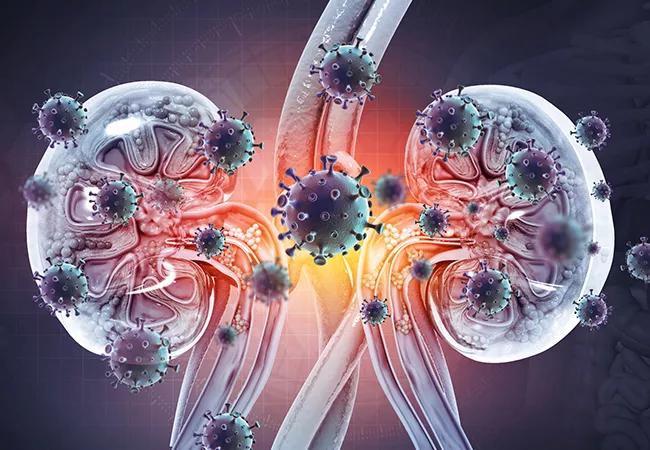Kidney transplant surgeon Alvin Wee, MD, MBA, presents findings at AUA meeting

In the transplant community, controversy continues about donation of extrapulmonary organs from deceased donors with COVID-19, despite mounting evidence that transplantation incurs little to no risk for disease transmission or worse outcomes.
Advertisement
Cleveland Clinic is a non-profit academic medical center. Advertising on our site helps support our mission. We do not endorse non-Cleveland Clinic products or services. Policy
Alvin Wee, MD, MBA, Surgical Director of the Kidney Transplant Program in Cleveland Clinic’s Glickman Urological & Kidney Institute, and colleagues published their initial case series in the American Journal of Transplantation. Here they reported that 10 kidneys from five donors were successfully transplanted, all with good outcomes.
Since then, the research team has gathered additional data from donors and recipients that reinforce the initial findings. Dr. Wee says they’ve completed more than 100 cases to date, all with excellent outcomes and no post-transplant COVID-19-related complications.
At the 2022 American Urological Association (AUA) annual meeting, they presented data collected from February 2021 to October 2021, including 55 patients who underwent kidney transplantation from 34 COVID-19 positive donors.
Dr. Wee says the selection criterion and guidelines were established collaboratively by a multidisciplinary team of transplant surgeons, nephrologists and infectious disease specialists approved by Cleveland Clinic Transplant Council.
Initially, they evaluated cases more conservatively. In their previously published report, none of the five donors died from COVID-19-related complications. Causes of death included asphyxia, cardiac arrest, drug overdose and drowning.
As the team continued to observe good results, they broadened their criteria selection to better utilize kidneys for transplant, even in deceased donors with more severe disease. In the data presented at the AUA meeting, the physicians report 38.2% (N = 13) died from COVID-19- related causes.
Advertisement
Dr. Wee says these findings show that “generally speaking, as long as kidney function is good, the organ is viable for transplant.”
The median donor age was 35 years (range: 6-57) with a median Kidney Donor Profile Index (KDPI) of 39% (range: 3%-82%). Additionally, all donors had at least one positive COVID-19 test obtained using a nasopharyngeal ribonucleic swab. Prior to death, six of 34 donors underwent ECMO. And median initial and terminal creatinine levels were 0.9 mg/dL (range: 0.3-1.9 mg/dL) and 0.8 mg/dL (range: 0.2-5.7 mg/dL).
Among the recipients, 36 were male and 19 were female. The median age was 55 years (range: 24-70). Two-third of the recipients were receiving dialysis at the time of transplant, and two-thirds of the patients were fully vaccinated at the time of transplantation.
Following transplantation, none of the recipients tested positive for COVID-19. All of the kidneys were functioning, although delayed graft function was found in 19.6% of the recipients, and one kidney was lost due to a vascular complication from infection not related to COVID-19.
Despite a record-number of kidney transplants completed in 2021 — both at Cleveland Clinic and nationwide — there is still a discrepancy between people on the waitlist and available kidneys for transplant.
Dr. Wee is hopeful that data like these will soon alter industry standards on transplant guidelines for donors with COVID-19 and support better utilization of extrapulmonary organs for transplant.
“Balancing the risk of accepting an organ with dying on the waitlist is always part of the decision when it comes to transplant, and the pandemic has made that even more complicated,” says Dr. Wee.
Advertisement
“But, just think about it, this approach has enabled more than 100 kidney transplants, a lifesaving intervention for patients on the waitlist, which may have otherwise been discounted. It also offers a glimmer of hope and meaning to the family members of these patients who died from this senseless death.”
Advertisement
Advertisement

Pediatric urologists lead quality improvement initiative, author systemwide guideline

Fixed-dose single-pill combinations and future therapies

Reproductive urologists publish a contemporary review to guide practice

Two recent cases show favorable pain and cosmesis outcomes

Meta-analysis assesses outcomes in adolescent age vs. mid-adulthood

Proteinuria reduction remains the most important treatment target.

IgA nephropathy is a relatively common autoimmune glomerular disease that can be diagnosed only by biopsy

Oncologic and functional outcomes are promising, but selection is key